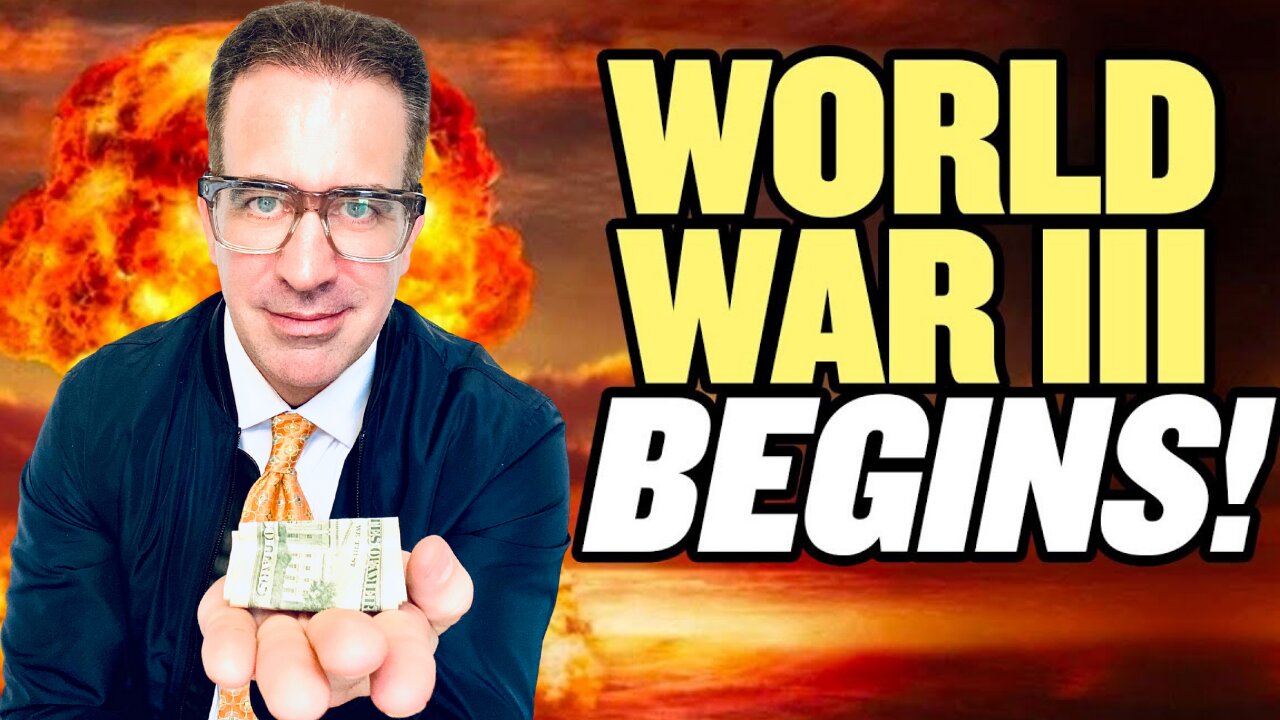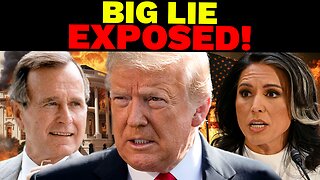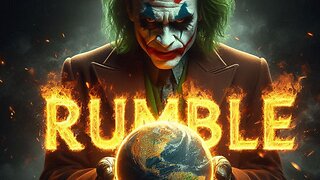Premium Only Content

WE ARE GOING TO WAR
ARE WE GOING TO WAR: TENSIONS ESCALATING between China-Taiwan & Israel and Iran.
Tensions with China are at their worst in 40 years, Taiwan's defence minister has said, warning of the risk of an accidental strike between the two. Chiu Kuo-cheng's comments came after China sent a "record number" of military jets into Taiwan's air defence zone for four consecutive days.
Taiwan considers itself a sovereign state. China, however, views Taiwan as a breakaway province.
It has not ruled out the possible use of force to achieve unification.
While Chinese jets have not been flown all the way to the island, Mr Chiu warned that there was a risk of a "misfire".Taiwan's air defence zone, which it monitors for threats, extends over an area that covers the Taiwan Strait and a large swathe of the Chinese mainland. They consider jets crossing an unofficial line between China and Taiwan as an incursion.
Mr Chiu also warned China would be capable of mounting a full-scale invasion of the island by 2025. He was speaking as a parliamentary committee in Taipei considered a multi-billion-dollar defence spending bill to build missiles and warships. Acknowledging that China already has the capacity to invade, he said such a move would get easier in coming years, though he did not elaborate.
Taiwan broke away from the mainland as communists seized power in 1949.
Analysts have warned that Beijing is becoming increasingly concerned that Taiwan's government is moving the island towards a formal declaration of independence and wants to deter its President Tsai Ing-wen from taking any steps in that direction.
A number of Western allies of Taiwan have expressed concern at China's open display of military might recently.
What is the 'One China' policy?
What's behind the China-Taiwan divide?
US approves $1.8bn weapons sale to Taiwan
However, US President Joe Biden said his Chinese counterpart Xi Jinping had agreed to abide by the "Taiwan agreement".
Mr Biden appeared to be referring to Washington's longstanding "one China" policy under which it recognises China rather than Taiwan.
However, this agreement also allows Washington to maintains a "robust unofficial" relationship with Taiwan. The US sells arms to Taiwan as part of Washington's Taiwan Relations Act, which states that the US must help Taiwan defend itself.
The "One China" policy, which Mr Biden and Mr Xi are believed to have referred to, is a key cornerstone of Sino-US relations but is distinct from the One China principle, whereby China insists Taiwan is an inalienable part of one China to be reunified one day.
"I've spoken with [Mr] Xi about Taiwan. We agree ... we'll abide by the Taiwan agreement," said President Biden. "We made it clear that I don't think he should be doing anything other than abiding by the agreement.
Despite the heightened tensions, relations between China and Taiwan have not deteriorated to levels last seen in 1996 when China tried to disrupt presidential elections with missile tests and the US dispatched aircraft carriers to the region to dissuade them.
Israel & Iran:
A deadly drone strike on an Israeli-operated tanker that’s been blamed on Iran has raised the stakes in a years-long shadow war between Israel and Iran. The two countries have attacked each other on land, by air and at sea in recent years, in Iran’s case sometimes through allies in the region. The July 29 attack on the tanker in the Gulf of Oman, for which Iran denied involvement, led to threats of retaliation from Israel. It also prompted warnings of potential reprisals from the U.K., which lost a crew member, and the U.S., which created a maritime force with partners in 2019 to help protect sea lanes in the Middle East.
They were allies starting in the 1950s during the reign of Iran’s last monarch, Shah Mohammad Reza Pahlavi, but the friendship abruptly ended with the Iranian Revolution in 1979. The Islamic Republic of Iran adopted a strong anti-Israel stance, decrying the Jewish state as an imperialist power in the Middle East. Iran has supported groups that regularly fight Israel, notably Hezbollah in Lebanon and the Palestinian group Hamas. Israel regards Iran’s potential to build nuclear weapons as a threat to its existence and is thought to be behind a campaign of sabotage against the country’s atomic program.
The risks of escalation are significant for both countries. According to Israel’s military, Hezbollah has an arsenal of around 130,000 missiles, which could cause substantial damage if unleashed on Israel. A step-up of the conflict could inflame the region and likely would further weaken Iran’s economy, already beleaguered by years of sanctions and a devastating Covid-19 outbreak.
Connect on:
Instagram: https://www.instagram.com/themcclonebrothers/
Twitter: https://twitter.com/themcclonebrot1
LinkedIn: https://www.linkedin.com/in/themcclonebrothers/
NPNFFQS3YU7FTLXH
-
 13:48
13:48
NONCONFORMING-CONFORMIST
1 year ago $0.01 earnedThe World As We Currently Know Will Change Forever
351 -
 LIVE
LIVE
Badlands Media
17 hours agoDevolution Power Hour Ep. 340
11,860 watching -
 47:21
47:21
Stephen Gardner
4 hours ago🔥The DEEP STATE is still covering up this HUGE LIE!! Trump MUST release MORE!!
5.27K8 -
 2:36:13
2:36:13
TimcastIRL
3 hours agoTrump Announces 25% Tariff On ALL CARS, Canada Begins MASS LAYOFFS Over Tariffs | Timcast IRL
187K83 -
 LIVE
LIVE
Alex Zedra
1 hour agoLIVE! New Game | Lost Lullabies
368 watching -
 2:44:05
2:44:05
TheSaltyCracker
3 hours agoDeep State Set Up Trump ReeEEStream Stream 03-26-25
76.1K145 -
 31:34
31:34
Friday Beers
8 hours ago $1.16 earnedWe Drank 12 Beers and Solved the Case of 9 Dead Hikers
7.66K2 -
 18:11
18:11
Nick Shirley
3 hours ago $0.91 earnedAsking The Irish If They Will Vote for Conor McGregor 🇮🇪
7.78K28 -
 LIVE
LIVE
Illyes Jr Gaming
4 hours agoIt's Wednesday! Let's Hit 300 Followers TONIGHT!
184 watching -
 LIVE
LIVE
Joker Effect
1 hour agoIs our government safe?***Streamer News***DRAMA***RUMBLE GETTING LEVERAGE***GAMING
712 watching